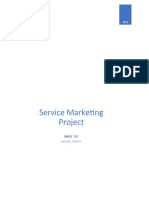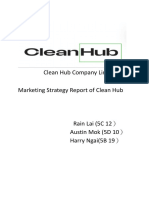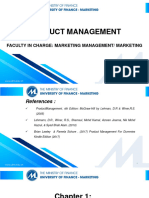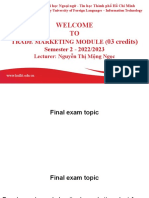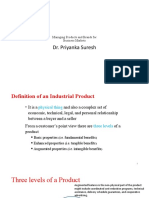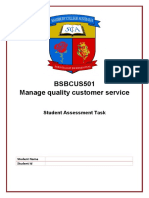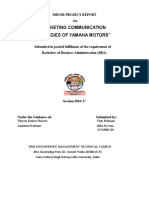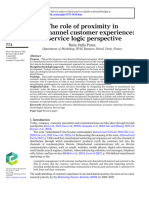0% found this document useful (0 votes)
363 views30 pagesBrand and Product Management Course Era Course Notes
This document provides an introduction to brand and product management. It discusses key topics such as product classification, product life cycles, demand calculation, new product development and launch processes, what constitutes a brand, and brand architecture. Specifically:
1. Over 75% of new products fail due to issues like not meeting market needs, poor product design, or users not understanding the product. Proper brand and product management is needed.
2. Products can be classified based on dimensions like need level, benefits, and target customers to determine product categories and lines.
3. A product's life cycle includes introduction, growth, maturity, and decline similar to a human's life stages. Market strategies must adapt to the current
Uploaded by
prsaxenaCopyright
© © All Rights Reserved
We take content rights seriously. If you suspect this is your content, claim it here.
Available Formats
Download as DOCX, PDF, TXT or read online on Scribd
0% found this document useful (0 votes)
363 views30 pagesBrand and Product Management Course Era Course Notes
This document provides an introduction to brand and product management. It discusses key topics such as product classification, product life cycles, demand calculation, new product development and launch processes, what constitutes a brand, and brand architecture. Specifically:
1. Over 75% of new products fail due to issues like not meeting market needs, poor product design, or users not understanding the product. Proper brand and product management is needed.
2. Products can be classified based on dimensions like need level, benefits, and target customers to determine product categories and lines.
3. A product's life cycle includes introduction, growth, maturity, and decline similar to a human's life stages. Market strategies must adapt to the current
Uploaded by
prsaxenaCopyright
© © All Rights Reserved
We take content rights seriously. If you suspect this is your content, claim it here.
Available Formats
Download as DOCX, PDF, TXT or read online on Scribd
/ 30

















